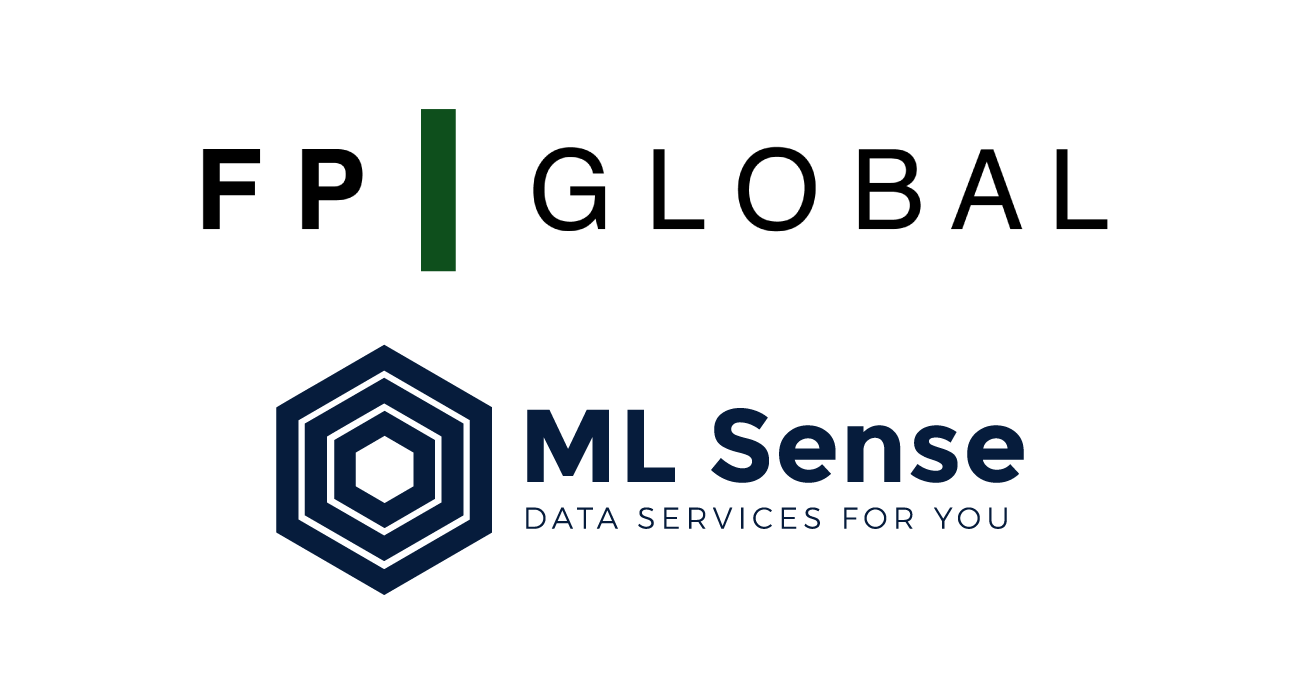Latest Insights
March 8, 2019
To commemorate International Women’s Day, join us in this Funds Partnership Asia special with Caroline Baker, Managing Director at Vistra Alternative Investments Asia. What are the challenges of being a leading lady in the male-dominated funds industry? As a mother of 2 and a regional head at Vistra Alternative Investments, Caroline candidly shares how she does the perceived near- impossible:
1. I understand you were at PwC before this, based in London. What was your journey like before joining PE? What’s your career trajectory in a nutshell? What made you relocate to Singapore?
I studied in Montreal, Canada in the Asset Management space and worked for PwC. An opportunity came up and I moved to Sydney, Australia for a short stint before being seconded to London for almost three years.
In 2012, an opening came up in Singapore, which I saw as a strategic opportunity for growth so I eagerly agreed to be based there for two years.
At that time, I was working closely with a client, a Private Equity Fund, The Chandler Corporation and eventually joined them full-time. It was the first time switching over to buy-side PE as a CFO. It was very eye-opening and exciting to see first-hand deals being done across regions and industries.
After 1.5 years, Ayyaz from Funds Partnership called me and recruited me to join Orangefield (which has now become Vistra) in 2014, specifically in Alternative Investments.
To be really honest, fund administration was not something that I had envisioned myself getting into, nor “aspired” towards. Perhaps like many others, I somehow had the impression that it was very bureaucratic, but I couldn’t have been more wrong.
My time at Vistra was extremely fast-moving and dynamic, especially in the rapidly-growing fund ecosystem that is in South East Asia. Initially, it was just one fund, then two, three, four… and we just kept growing exponentially from there. And there is still is so much potential for growth. Five years later, we have grown to 80 people, 5x the size with how we started out!
I believe this goes hand-in-hand with the increasing number of clients outsourcing in the region. I foresee that Singapore will become an increasingly attractive place to have your fund domiciled especially for fund managers. In particular, Private Equity and Real Estate are more attractive asset classes these days from the public markets.
2. When did you decide to make that switch from buy-side into fund administration, especially when the former seems to be conventionally the “end goal”?
More people want to go to the buy-side, and understandably so, given all that’s known about its perks. However, what most people don’t see is that you only will get exposure to ONE fund – which is very limited! Most do not even know how an actual fund works from end-to-end.
On the other hand, being a service provider and working with the clients across multiple strategies gives you the breadth of what’s happening in the industry. It makes you a more well-rounded, and that’s the experience I got at PwC, where I had spent the majority of my career.
Nevertheless, my brief stint in the buy-side was definitely needed! As a CFO at a buy-side firm, I was better-equipped to understand what clients’ needs are, their appetite for offerings, and what is really required. Indeed, understanding two sides of the coin has proven very beneficial.
3. What’s a day in the life of a Managing Director?
I have to say every day is a bit different, depending on what comes up:
- There will always be the internal management and administration, especially with all the hiring and expanding that we are doing recently. I have a regional role so it definitely includes a lot of interactions with our headquarter office in Hong Kong. There’s no fixed proportion as it really varies depending on the circumstances.
- Clients will always be our priority, so there’s a lot of interacting with existing clients and meeting new clients. It involves learning about their needs and how we can assist them, resolving any queries, and looking for new opportunities.
- Another big part is speaking to potential investors on both a regional and global level.
It’s very fulfilling and no two days are the same. I enjoy that it involves both visionary work but I can also be hands-on.
4. How do you manage all that as a mother? Is there any difference being a female in this role?
Well, I have a 2-year-old son and a baby girl on the way!
Your priorities will definitely change once you have kids, but it’s entirely possible to retain the career and progression that you had before! While it’s a difficult balance, fund administration definitely that gives you flexibility to leave on time or to work from home.
Mothers need that flexibility in a job, and Vistra is really supportive. The more senior your position, the more demands you have on your time, but it also gives you more autonomy in scheduling.
Once I’m home, I try to be fully present. When my son is awake, I can take the time to fully focus on him. Once he’s in bed, I’ll go back to work for a couple of hours to finish any outstanding items.
We’ve also been really fortunate to be in Singapore, where there is ample childcare support so they are engaged during the day. You need to know you CAN’T possibly do everything yourself, and you don’t want to do everything yourself either. It’s a matter of prioritising what’s important to you.
An equal partner is equally important, such as a supportive partner who is willing to make sacrifices for the family. For example, I was sent to Canada for six months to set up our new office and there’s no way I could go without my son… so my husband took six months off work to come along!
This really made me appreciate the importance of working as a team. In fact, the reason I relocated to Singapore was because he was posted here for work. There’s a lot of give and take, and taking turns to support each other depending on our different seasons and opportunities.
5. It definitely seems that being a mother and succeeding in the funds industry is not mutually-exclusive. Was it a conscious effort to be disciplined or did you naturally find your pace?
I think it’s about finding something that you enjoy and are passionate about. The company you’re working for needs to be important enough for you to want to take away some time from your personal life.
Otherwise, you will start resenting every moment and the choice will become very difficult if you don’t enjoy your work. And that’s why it’s so important to step back, be BOLD and make the right career choice!
6. How is the work-life balance in fund administration? Would you say that it is better-suited for back-to-work mums compared to buy-side?
I’m learning that there is never going to be a perfect balance, just an acceptable balance.
While we need to stick closely to our clients’ timelines regarding reporting and deals, client-servicing does give good element of flexibility. Having foresight on the deliverables allows us to make preparations in advance, so what matters most is ensuring everything is properly resourced and accounted for.
We have a lot of working mums here at Vistra, and we give them flexible hours for what works for their families. For example, some start earlier in the morning after dropping the kids off at school, leave earlier to pick them up and then work from home later in the night.
There will be the occasional overtime when clients are rushing a deadline, but that’s where your support system comes in (be it your partner, parent or domestic helper!). The deal pressure of being in the buy-side is not there, which removes a lot of unpredictable factors.
7. When you first entered the fund industry earlier on, was there any prejudices or obstacles you had to overcome?
Honestly, from my experience, Singapore is one of the better places for women working in finance.
Women still struggle with biases and discrimination towards them simply because of their gender, and I hope that will continue to improve, however for me personally, I don’t feel that being a woman has hindered my career.
That said, we do need to be aware of some of the dynamics that do happen when you are the only woman in a room with 10 people, which happens quite often in the finance industry.
One very important thing to remember for women is to have confidence in their own abilities. For example, when I look at performance ratings, the men will rate themselves 5.5 but equally-capable or even higher-performing women will give themselves a 3.5.
We are truly our own worst critics, when we instead need to be our own best champions.
You have to realise that you have earned your place at the table and you are valued there! We need to recognise that having women on Boards and on senior leadership teams actually creates more revenue and contributes to better-functioning companies.
Women need to speak up and be part of the conversation, and it starts with you having that confidence to believe yourself!
8. What advantages would women have over men? Do you have any tips on how women in leadership can better work with male colleagues?
For one, women, in general, possess higher EQ; we can read people well.
The more women we have in leadership roles, I believe will create a more empathetic culture and company. We are able to understand what people are going through and can connect better with both women and men beyond an intellectual and work level.
For women who are managing and/or interacting with male colleagues, have confidence in your ability!
You are there for a reason. Believe it and take ownership of it! They will come to respect you and learn to complement your capabilities and style.
9. What types of technical and soft skills does one need to enter fund administration? For a mid-career switcher with no prior experience, what do you recommend as the best route to entry?
For technical skills, an accounting qualification or some form of exposure to PE would be good, but not an absolute necessity. As for those without strict accounting backgrounds, having experience or skills in ancillary services can also contribute to your advantage.
If you’re doing a mid-career switch from an unrelated industry, here are some of the soft skills we are looking out for:
- Eager to learn and adapt. That is one of the key things we look for – how fast you can pick things up, flexibility and a positive attitude! In such a fast-paced and dynamic industry, there will always be changes. We don’t expect you to know everything but you need to have a teachable attitude and the desire to learn and grow.
- Dedication to client service. There will always be last-minute changes, unreasonable clients, and crises, but having the interpersonal skills to manage relationships will definitely put you at an advantage.
- Interest in growing alongside the business. We prefer to work with people who are not in it just for a paycheck, but rather, people who are genuinely interested and invested in taking our business to the next level. If you simply want to execute a job and get paid, this is probably not the right role for you.
If you are interested to make a mid-career switch or pursue a career in fund administration, do send your queries to careers@fundspartnership.com and we will be in touch shortly!
Articles You May Like





Talent is King (and Queen) in Alternatives: Insights from the 2024 EY Global Alternative Fund Survey

Capabilities
Executive Search
LEADERSHIP TRAINING & CONSULTANCY
People
Expertise
FP GLOBAL PTE. LTD. Licence Number: 22C0953









